Basics
Film Title: Second Chance
Reviewer: Mahfouz A. Adedimeji, Ph.D., fspsp
Director: Funsho Aliyu
Producer: Film for Dawah Initiative (FILFORDAW)
Stars: Toyin Alausa, Akin Lewis, Funsho Aliyu, Ayo Akinsanya, Fausat Balogun
Duration: 132 mins
Year: 2018
Background
Exactly two weeks ago (i.e. on Sunday, November 11, 2018), 86 world leaders converged on Paris, France, to commemorate the 100th year of the end of the First World War.
The end of the Great War, as it is known, in 1918, a year after the infamous Balfour Declaration of November 2, 1917, which provided for “the establishment in Palestine of a national home for the Jewish people” within the territory of the Islamic Caliphate, was to portend the end of the great Islamic Ottoman Empire.
The heartrending development was a natural corollary of the sad chains of events that ultimately resulted in the abolition of the Ottoman Sultanate, which occurred on November 1, 1922 leaving Muslims defenseless with cataclysmic and catastrophic consequences borne since then till today.
One of the consequences of the colossal loses of Muslims in the 19th and 20th centuries, leading to the abolition of the Islamic caliphate, the criminal looting and occupation of their lands is their subjection to psychological warfare, which means the use of propaganda on an enemy, supported by military, economic and political measures.
This warfare manifests in casting Muslims in negative light or their negative portrayal in the media and using movies to demonise and dehumanize them.
Over the past 100 years or less, therefore, there has been a heavily-built and well-oiled industry devoted to psychologically attacking Muslims in the movies and the media at large, with hundreds of titles devoted to the project everywhere, with the examples in English being “Exodus” (1960), “Cast a Giant Shadow” (1966), “Network” (1976) “Black Sunday” (1977) and others previously highlighted elsewhere (Adedimeji, 2018).
The response of Muslims took a long time to come and when it came, it was in bits and pieces, usually without a bang or impact.
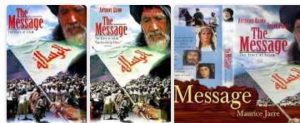
But 1976 marked a significant watershed in Islamic cinematography with the debut of a major Islamic movie in “The Message”, where Moustapha Akkad masterfully explores the moral dimensions of the Prophet and his life in the epic story.
The same Director followed his debut with his “Lion of the Desert” (1981), where Omar Mukhtar is rightfully presented as a heroic figure of the Libyan struggle against the brutal Italian colonialists, a man with the beauty of the indomitable Muslim spirit.
Other Muslims have followed the same direction producing works of significant acclaim like Majid Majidi’s “The Colour of Paradise” (1999), Anisa Mehdi’s “Inside Mecca” (2003) Haifaa Al-Mansour’s “Wajdja” (2012), Nader Telebzadeh’s “The Messiah” (2007) and Majid Majidi’s “Muhammad: The Messenger of God” (2015), just to mention a few.
Intro
Like other parts of the world, the film industry in Nigeria has been part of the global industry of psychological warfare. Even before the first World War, Muslims in Africa and Nigeria in particular had earlier been overwhelmed by the superior firepower of the colonial masters since when they bombarded Lagos with their gunboats in 1851, removing Akintoye and installing Kosoko as Oba.
They had pushed forward and upwards in their campaign of conquest and plunder, succeeding ultimately in sacking the Sultan and the Caliphate in March, 1903.
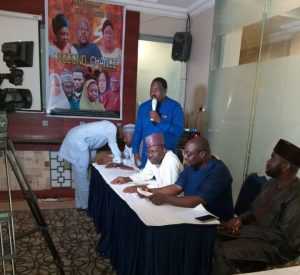
As obtained at the global stage, where Muslims are framed as terrorists as it suits their geo-strategic and Islamophobic agenda, the norm has been to entrench a system of deliberate profiling, casting and caricaturing Islam through villains bearing Muslim names or rendering Muslims as the dreg of the society, only good in Nollywood when cast as drivers, messengers, jesters, cleaners, or just as a morally debased bunch of corrupt and dirty individuals.
Though there may have been some isolated efforts by Muslims in using the movie industry to project or propagate Islamic ethics and etiquettes in Nigeria before now, with a recent one providing an opportunity for advocating Muslim investment in the industry (The Nation, 2018), it appears that a systematic approach to the challenge is the one championed by Film for Dawah Initiative (FILFORDAW).
FILFORDAW’s debut production is this sizzling movie, memorably captioned “Second Chance”, a film aimed at viewing a perennial social dynamic among us in Nigeria from a Muslim perspective.
In essence, the subject of marital irresponsibility is a dominant feature of our contemporary society, with serious implications for health and happiness. That Muslims are also caught in the mire of this social miasma is an open secret that assails our conscience.
Today, many Muslim women are suffering untold hardships and unspeakable abuses from their husbands and in-laws, who are supposedly Muslims too. The high rates of divorce itself leading to the huge number of maladjusted street children and Codein-powered irresponsible youth of today, who constitute danger to the society, are evidence of the rot that has characterised the basic social unit of family.
It is therefore apposite that the need of the day is for Muslims to rise to the challenge of being Muslims, a charge earlier given by Maulana Maududi in his Let Us Be Muslims (1985), and avoid the ugly trend of being selfish and maltreating women. This is the theme addressed in this remarkable film starring a blend of veteran and upcoming professionals.
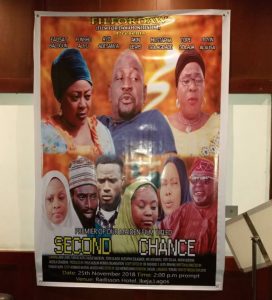
Overview
A film of high aesthetic appeal, “Second Chance” tells the story of a woman of faith, Balqees, who passes through the vicissitudes of life in marriage without losing her composure. Married to an uncaring husband, Banji, the son of an inconsiderate and unconscionable mother, played by Fausat Balogun, Balqees early in the film is subjected to intensive domestic work by her mother-in-law, despite being heavy with pregnancy.
The refusal of her husband to pick her and daughter from the house of her mother-in-law because of the excuse of watching football made her to resort to returning home on a commercial motorcycle, okada, a very bad choice for a pregnant woman with a daughter.
The accident on that fateful day results in losing her pregnancy and the ability to bear future children, apart from confining her to a wheelchair for years.
Rather than show support and love, Banji yields to his scheming mother and marries another wife, his mother’s original preference, Asabi, a nominal Muslim and lousy lady from a rich family. Banji elopes with Asabi while abandoning his wife in the hospital. He refuses to provide for his physically-challenged wife and young daughter till they are ejected from their rented apartment and subjected to a life of hardship and disillusionment.
Yet, in all these trails, Balqees is a quintessential woman of faith, who bears her sufferings with dignity, patience and prayers, reflecting what Allah says of the true believers when they are confronted with the enemy alliance: “this only increased them in faith and submissiveness” (Q33:22).
After many years the number of which we are left to guess, fate would make the children of Banji from his worldly wife, who uses every opportunity to tell him he is useless and lazy, a well deserved punishment though, to seek employment in a company run by Balqees. Banji and Balqees meet later and it is naturally a big surprise.
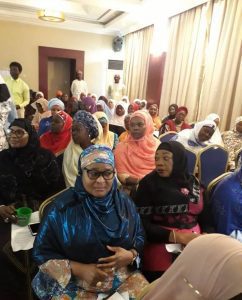
Balqees forgives her husband, gives him a second chance in her life, employs his sons only for the man to connive with his cantankerous wife to sell Balqees’ property in order to travel abroad. Here, the brilliance of Layo’s suitor, Hakeem, comes to the fore and the story attains its denouement on the day of the nikah when the bubble bursts, with Asabi and Banji getting arrested, ruining his daughter’s day of joy after running her mother’s life aground.
Strengths
Apart from its timely thematic preoccupation and the merit of getting Muslim youth acquainted with the proper way of seeking a lady’s hand in marriage through Hakeem’s style, Layo and her future husband conduct their relationship within the confines of Islamic etiquette.
The film also sounds a warning to mothers-in-law to desist from making life miserable for their daughters-in-law, a narrative that has already been explored in the conventional Nigerian film industry.
The film is also powerful in distilling the message of patience and forbearance in women, inculcating the spirit of forgiveness and ultimately highlighting that though Muslims would be tried in this life, sincerity and faithfulness would make them overcome their challenges. Afterall, the Prophet was reported to have said that a true believer is the one tried, an echo of the everlasting message in the Qur’an (i.e. Q. 30: 1-3)
It is impressive that “Second Chance”, which is of high technical quality, serves to awaken the consciousness of young women to the sad reality that marriage is not a bed of roses but a work in progress.
The film serves to awaken in them the spirit of patience and forbearance with the undertone of attracting divine support for sacrifices made in keeping their marriages despite the suffocating stench of the challenges. “Second Chance” is ultimately a call to Muslims in particular and the general audience at large to stop the macabre dance of irresponsibility, the dance of death through which people are led to their grave.

In clear terms, subjecting believing women to what Balqees goes through can only preclude a person’s dance to jail or dance to eternal damnation. Women are to be loved and respected, not to be used, abused and dumped. So, the macabre dance of domestic abuse and marital irresponsibility must stop now, the film appears to strongly warn us all.
Issues
In spite of the thematic relevance and aesthetic appeal of this film, it is not a perfect work of art since no one or work actually is. There is a gap in the constancy of the character of Balqees, played by Toyin Alausa, from the beginning to the end, whereas there is there are older characters of Banji in Akin Lewis and Asabi, Ayo Akinsaya, as opposed to the younger versions played by Funsho Aliyu and Tope Solaja respectively without mentioning the young Lola who becomes a fair girl as an undergraduate.
Balqees’ character too should have changed for more authenticity. The film is also long at about 2 hours and given the fact that the target audience are the distracted youth of today with AOP (“Aye O Po” or there is no time) mentality, the shorter it is, the better in the context of people’s admiration for keeping it short and simple (KISS).
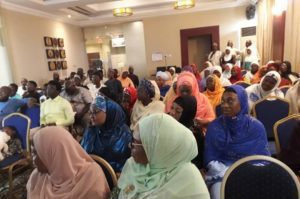
Then, a second look should have been given to the text of the subtitle with a view to addressing slight infelicities (such as ‘text’, instead of ‘test’; ‘antie’, instead of ‘auntie’) as well as the spelling of some names of the cast.
Appraisal
It is gratifying that “Second Chance” is coming at an auspicious time when Muslims are trying to extricate themselves from the bondage imposed on them by their defeat at the end of the First World War and their subjugation by colonialism and imperialism which effectively sought to de-Islamise them in Nigeria.
It is crucial that rather than lamenting or capitulating, or looking at the window to blame others for our misfortune, the ideal thing is to look in the mirror and blame ourselves for not doing what is right and make amends.
Part of what is right is providing Islamic alternatives, just as FILFORDAW has done, to whatever is available and not succumbing to defeatism and helplessness.
What the Film for Dawah Initiative has sought to demonstrate is that it is not enough to identify what is unIslamic, it is necessary to provide Islamic alternatives and with hard work, Muslims can now snatch victory from the jaw of their defeat.
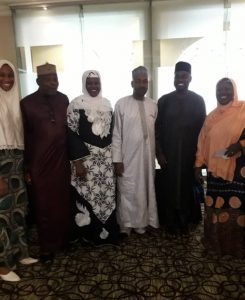
While seeking alternatives too, conscious efforts should be made at the level of professionalism so that the solution itself would not be part of the problem. In this regard, training is crucial while compliance with Islamic ethics and ethos is sacrosanct in order not to assume that a Muslim film is an Islamic film, whereas there is a world of difference between them. There are Muslim professionals quite alright in the industry but there is an urgent need for the Islamic ones.
Conclusion
Having watched this film from the beginning to the end, I have no hesitation in recommending it not only to the Muslim audience but also the larger society. “Second Chance” is highly commendable because it is a proof that sheer narrativity, good plot structure and artistry can be stimulating and engaging without assailing eyes with nudity and other ills that bedevil the conventional film industry.

Islamic organisations, schools and families will find showing it to groups beneficial and the film itself can be studied for discussion by groups. It is my fervent hope that this maiden production will herald more titles that will strongly position FILFORDAW as a brand in the global film industry. I salute the cast and the crew, especially the Director, on what is potentially a turning point in film making in our part of the world.
References
– Adedimeji, M. A. (2018) “Give Little, Get Plenty: A Review of Ojo Ogundoju’s ‘Charity.’” Text of the Film Review Presented at the Africa Hall, Mustapha Akanbi Foundation, Ilorin, on Sunday, May 13.
– Adedimeji, M. A. (2015) Covering Islam here and there: A Review of Rasheed Abubakar’s Muslims and the Threat of the Media. Text of the Book Review presented at the New Lagos Central Mosque, Surulere, Lagos on Sunday, May 3.
– Maududi, S. A. (1985). Let us be Muslims. Leicester: Islamic Foundation.
– News Agency of Nigeria (2018). “Don tasks Muslims to invest in film industry”. Retrieved from http://sunnesonline.com/don-tasks-muslims-to-invest-in-film-industry on November 24, 2018.
– The Nation (2018) “Invest in movies, don urges Muslims”. Retrieved from http:/thenationonlineng.net/invest-in-movies-don-urges-muslims on November 23, 2018.


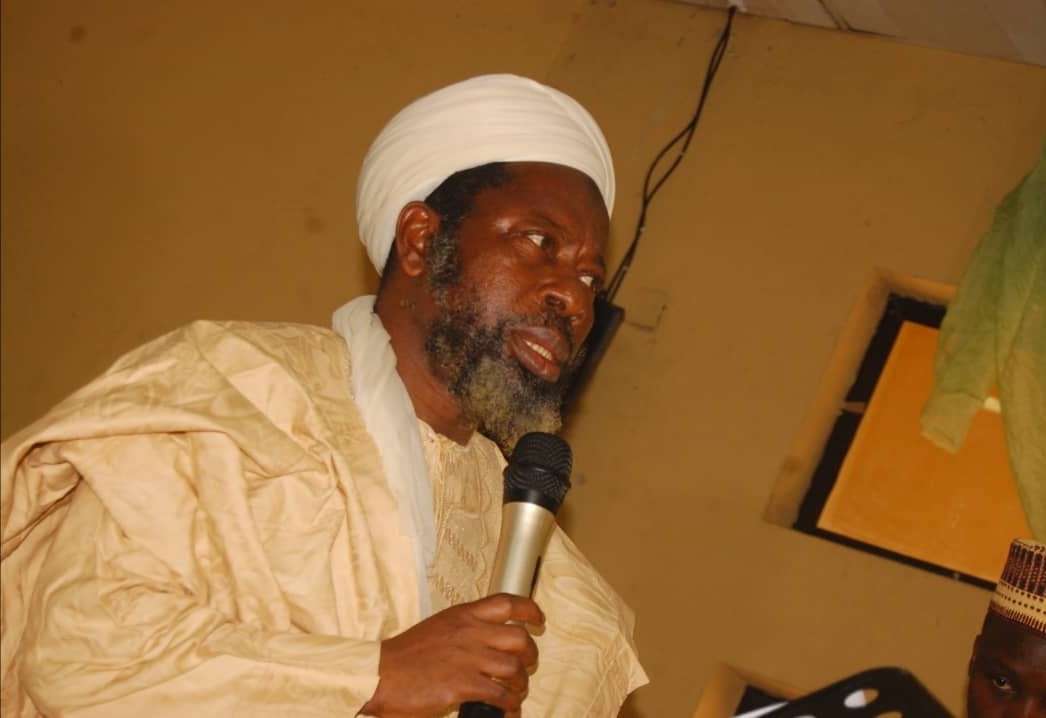

This is a great development. Thank you Dr. Mahfouz for the review.